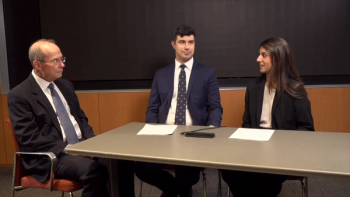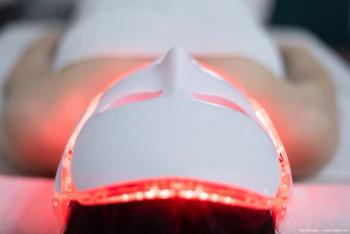
Formosa Pharmaceuticals, AimMax Therapeutics unveil top-line results for drug candidate to treat inflammation, pain after cataract surgery
The companies note that data from Study CPN-302 confirm the results in the first Phase 3 study, CPN-301, and they demonstrate the clear benefits of treating patients after cataract surgery with APP13007.
Formosa Pharmaceuticals Inc. and AimMax Therapeutics Inc. today reported successful top-line results from CPN-302, the second of the two pivotal Phase 3 clinical studies of APP13007, a novel ophthalmic nanosuspension formulation of the potent corticosteroid, clobetasol propionate (0.05%), for the treatment of inflammation and pain after cataract surgery.
According to the companies, CPN-302 was a randomly assigned, double-masked trial in the United States that evaluated APP13007 versus matching placebo (1:1 ratio) in 370 randomized subjects following cataract surgery (including 151 in a corneal endothelial cell sub-study). As in the first Phase 3 study, CPN-301, the primary endpoints were complete and sustained resolution of ocular inflammation and pain after cataract surgery, i.e., anterior chamber cell (ACC) count = 0 from post-operative day 8 (POD8) through POD15 and ocular pain grade = 0 from POD4 through POD15.
Treatment with an APP13007 eyedrop twice daily for 14 days achieved both primary endpoints by producing rapid and sustained clearance of ocular inflammation and cure of ocular pain which were statistically (p < 0.001) and clinically superior to placebo. A total of 57.8% of subjects had ACC count = 0 on POD15 following APP13007 treatment as compared to 18.9% following placebo treatment (p < 0.001). A total of 85.4% of subjects on APP13007 were ocular pain free as early as at POD4 as compared to 51.4% on placebo (p < 0.001).
The companies also noted that APP13007 treatment was well tolerated with a safety profile similar to that of placebo. There were no study drug-related serious adverse events, and the treatment-emergent adverse events were mainly ocular events commonly seen after cataract surgery. Adverse events of IOP elevation were infrequent and were managed easily without the need to stop the study drug. There was no difference between APP13007 and placebo in corneal endothelial cell density prior to treatment or at 3 months following treatment.
Derek Nunez, MD, AimMax Therapeutics' chief medical officer, noted that the data from Study CPN-302 confirm the results in the first Phase 3 study, CPN-301, and they demonstrate the clear benefits of treating patients after cataract surgery with APP13007.
“These two large studies also establish the reassuring safety profile of APP13007," he said in the news release. "We are extremely pleased to have successfully completed the two large pivotal clinical trials over a challenging pandemic period and to have clearly demonstrated the superiority of APP13007 in both primary efficacy endpoints, paving the way for an NDA submission.”
Erick Co, PhD, Formosa Pharmaceuticals' CEO, noted in the news release that the company was pleased by the consistent performance and continued success of APP13007 in this second pivotal Phase 3 trial.
“Once again, we extend our gratitude to our clinical team at AimMax Therapeutics, as well as our employees, for working together to achieve this clinical and corporate milestone,” he said in the release.
Newsletter
Don’t miss out—get Ophthalmology Times updates on the latest clinical advancements and expert interviews, straight to your inbox.





























